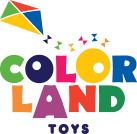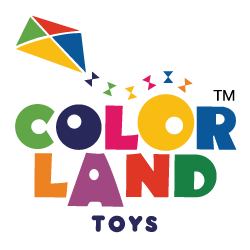How to Instill Effective Communication in Kids?

Effective communication is a cornerstone of healthy relationships and personal well-being. For children, the ability to express themselves openly is crucial for their emotional development and building strong connections with others. In this comprehensive guide, we'll delve into the significance of communication for kids, exploring ways to create a safe and supportive environment where they can freely share their thoughts, feelings, and needs.
The Importance of Communication in Kids:
Communication is more than just exchanging words; it's a fundamental aspect of understanding and being understood. For children, the ability to communicate effectively plays a pivotal role in their emotional and mental well-being. When kids feel heard and acknowledged, it establishes a foundation for healthy relationships and fosters a sense of security.
Also get to know about how to develop language skills in toddlers?
Creating a Safe Space:
To encourage open communication, it's essential to establish a safe and non-judgmental space at home. Parents can achieve this by actively listening to their children without rushing to provide solutions. Creating an environment where kids feel comfortable expressing their thoughts without fear of criticism builds trust and strengthens the parent-child bond.
Building Trust with Parents:
Trust is the bedrock of open communication. Parents can cultivate trust by consistently demonstrating understanding, empathy, and respect for their child's perspective. Actively listening, validating feelings, and offering support are key elements in building a trusting relationship where children feel secure in sharing their thoughts and experiences. Additionally, engaging in play with their kids is crucial for parents as it fosters bonding, encourages creativity, and strengthens the parent-child relationship.
Teaching Kids to Identify and Express Emotions:
Effective communication relies significantly on emotional intelligence. Helping children identify and express their emotions equips them with the tools to navigate and communicate their feelings. Parents can engage in conversations about emotions, providing a vocabulary for their children to express what they are experiencing.
Encouraging Open Dialogue:
Encouraging open dialogue involves creating opportunities for regular communication within the family. Family meetings provide a platform for discussing arious topics, fostering an atmosphere where everyone's opinions are valued. This practice not only strengthens family bonds but also instills in children the importance of expressing themselves openly.
Empowering Kids to Speak Up:
Empowering children to express themselves assertively is a valuable skill for effective communication. Parents can teach assertiveness by encouraging their children to articulate their needs and opinions respectfully. Role-playing scenarios can be a fun and interactive way for kids to practice expressing themselves in different situations.
Effective Communication Beyond the Family:
Communication extends beyond the family unit to interactions with peers, teachers, and other adults. Kids can benefit from guidance on expressing themselves in different social contexts, such as classroom discussions or group activities. Encouraging them to share their thoughts with others helps build confidence in their communication skills.
Art of Listening:
Effective communication is a two-way street, emphasizing the importance of active listening. Teaching children to be attentive listeners enhances their understanding of others and strengthens their interpersonal skills. Parents can model active listening by paraphrasing, asking clarifying questions, and showing genuine interest in what their child has to say.
Utilizing Creative Outlets:
Children often find creative outlets to be powerful tools for expressing themselves. Encouraging activities like drawing, writing, or engaging in artistic endeavors provides alternative avenues for communication. These creative expressions can offer insights into a child's thoughts and emotions that might be challenging to articulate verbally.
Dealing with Difficult Conversations:
Effective communication involves navigating difficult conversations and conflicts. Parents can guide their children on approaching sensitive topics with diplomacy, emphasizing the importance of staying calm, using "I" statements, and seeking resolution collaboratively. Teaching conflict resolution skills empowers kids to handle challenging conversations constructively.
Overcoming Communication Barriers:
Communication barriers are common, but they can be addressed with patience and persistence. Parents can help children overcome obstacles by actively identifying and discussing communication challenges. Encouraging kids to express themselves even when facing difficulties fosters resilience and adaptability in their communication skills.
In fostering effective communication skills in children, the role of supportive tools and toys cannot be overlooked. Colorland Toys, with their innovative and engaging products, play an integral part in enhancing speech and communication abilities in children. The vibrant and interactive nature of our toys creates an environment where kids can express themselves through play, aiding in language development and social skills.
Our diverse range of toys, designed with educational purposes in mind, provides children with avenues to explore and articulate their thoughts and feelings. Whether through imaginative play, storytelling, or collaborative games, these toys not only entertain but also serve as catalysts for building language proficiency.
Moreover, the communicative aspect extends beyond the child, involving parents in the process. Our products are designed to be not just playthings but tools for interaction. Parents can actively participate in their child's play, fostering a bond through shared experiences. The toys become bridges for open communication between parents and children, creating moments of joy, learning, and connection.
As we navigate the journey of nurturing effective communication, we stand as a partner in this endeavor. Their commitment to providing quality, educational toys aligns seamlessly to empower children to express themselves confidently and encourage meaningful dialogues within the family. In choosing Colorland Toys, parents not only invest in play but also in the development of essential communication skills that will benefit their children throughout their lives.






 +971 50 150 4446
+971 50 150 4446